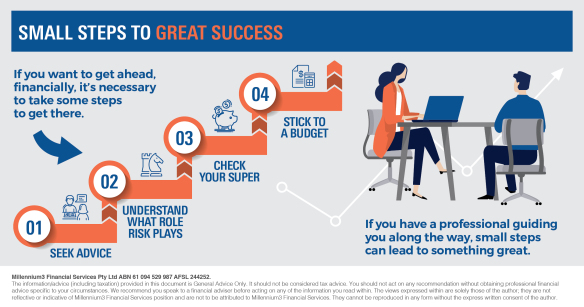What is income protection?
Also known as ‘salary continuance insurance’ or ‘disability income insurance’, income protection provides a portion of your income, for example 75% of your annual salary, if you are unable to work due to injury or sickness for a certain period of time. You need to advise your annual salary when you take out the cover.
Income protection policies always have a waiting period and a payment period. The waiting period is the time you must wait from when you make a valid claim, to the time you become eligible to start receiving payments. The payment period is the period you can be paid so long as you remain unable to work. Other terms and conditions apply depending on the policy. All of these factors affect the level of premiums you pay.
What are the changes?
Recently, the Australian Prudential Regulation Authority (APRA) announced that it is concerned that insurance companies have been keeping premiums at unsustainably low levels to compete for customers. APRA also think that some policies have very generous features and terms that, in some cases, provide a financial disincentive for people to return to work after successfully making a claim.
Has APRA announced what changes will be made?
Yes, effective from 31 March 2020, insurance companies must:
- stop providing ‘agreed value’ policies that are based on the income you advise at the start of cover, regardless of any subsequent change in income. This means no more ‘agreed value’ contracts can be bought or sold after 31 March 2020.
What other changes are likely to be made?
Other changes, effective from 1 July 2021, include:
- your insured income is to be based on your annual income at the time you make a claim, and are not able to look back more than 12 months
- limits of 100% of income replacement payments can be made in the first six months and 75% thereafter, with a total limit of $30,000 per month
- a maximum payment period of five years, with a right to renew cover
- insurance providers must have adequate risk management processes in place to mitigate the risks associated with long term benefit payment periods.
APRA is seeking feedback on the above changes from the industry by 29 February 2020 and will make a final decision by 30 June 2020.
What happens to existing policies?
If you have an existing retail income protection policy which include a ‘Guarantee of Renewability’ in the policy wording, that is, the policy is automatically renewed each year, your policy will continue.
Are policies which meet APRA’s new expectations available now?
No, to purchase an income protection policy which takes into account APRA’s changes we need to wait until the insurance providers have issued new policies with new Product Disclosure Statements.
More information
For more information, please read APRA’s media release or contact our financial adviser, Dev Sarker today at 1300 71 71 36.

